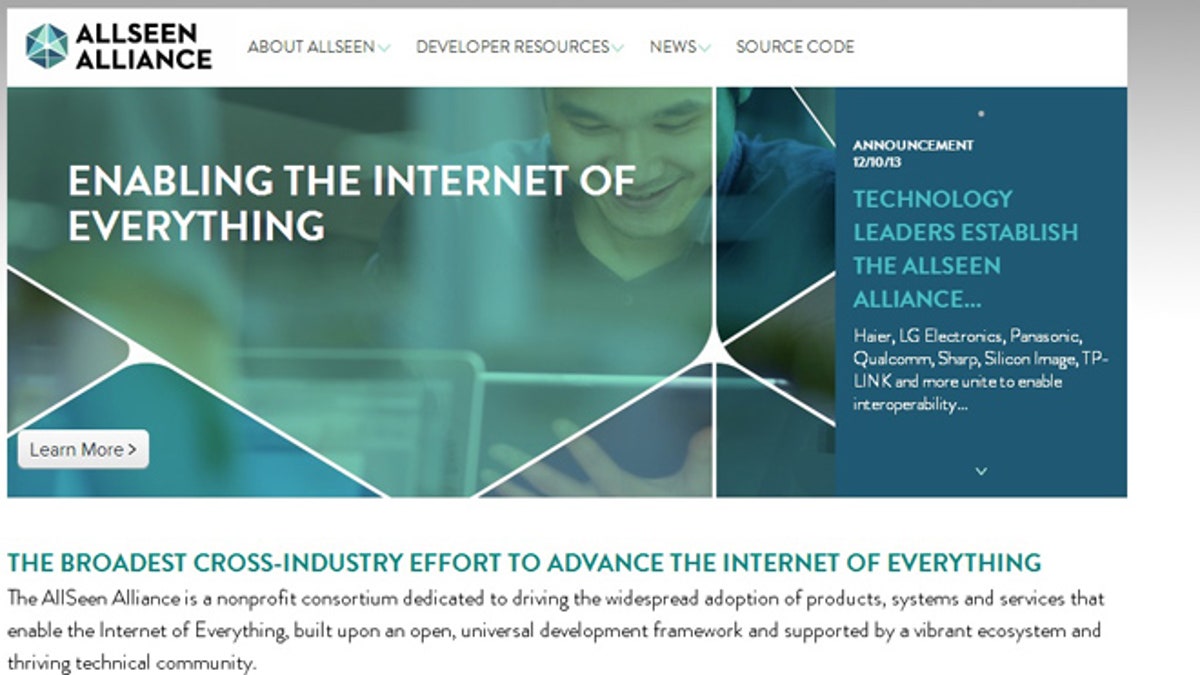
A screenshot of the website for the AllSeen Alliance, a new initiative to make connected, "smart home" appliances smarter. (AllSeen Alliance / FoxNews.com)
Stoves are from Venus, fridges are from Mars, right?
Appliance manufacturers are building Internet connections into everything in your house, a phenomenon tech experts call “The Internet of Everything” (and ordinary people call “complicating my stuff”). But most connected gadgets talk only to gear from the same manufacturer -- it’s like the Balkanization of your kitchen.
To address that problem, the Linux Foundation on Tuesday announced the formation of the AllSeen Alliance, and a new communication protocol to get that connected doorbell talking to your lights, microwave oven and smoke detector. Qualcomm, LG, Panasonic, Haier, Silicon Image and TP-LINK are headlining the initiative, which also includes names as diverse as Cisco, Sears, and Wilocity, according to The Verge.
[pullquote]
The AllSeen technology is based on a protocol Qualcomm invented a few years earlier, called AllJoyn, which allows devices to discover each other and negotiate over a variety of connections, including Wi-Fi and Ethernet.
"We're at this place where people are trying to do everything vertically because they don't see another solution, and the Alliance is saying 'here's a big honking piece of functionality Qualcomm is willing to give away,'" Qualcomm senior vice president Rob Chandhok told The Verge. "It's a huge problem that needs to be solved... that simply makes no sense for everybody to keep reinventing by themselves over and over."
Using AllSeen, the alliance says a family that installs a smart lock for their front door will be able to connect it to smart lights and security cameras from other manufacturers. Unauthorized entries can trigger the lights to flash and the camera to take a photo of the intruder and send a notification and picture to the smart TV.
The new, freely available standard should lead to cheaper smart appliances, said Rich Brown, executive editor for appliances at CNET.
"Consumers should welcome anything that makes it easier for this new class of devices to talk with each other, and that's what the AllSeen Alliance seems to do," Brown told FoxNews.com. But the existence of a single standard doesn't necessarily mean all will adopt it -- or that everything will work seamlessly.
"If the market continues to grow like everyone predicts, large players like Apple, Google and Microsoft may be tempted to throw their weight behind a different, possibly proprietary standard to lock up as much of the market as they can. Connected device makers and consumers could then have to choose between ecosystems," he said.
"It's not inconceivable that we might end up shopping for a car, a washing machine, or even a house based on whether it's compatible with your preferred Internet of Things standard."








































